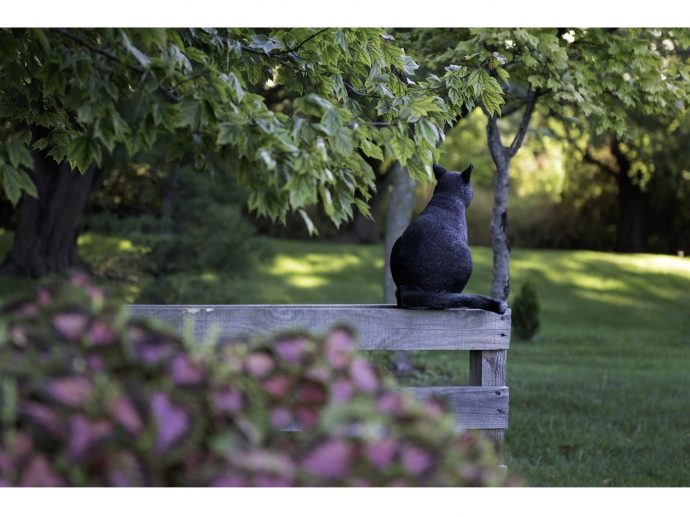Categories more
- Adventures (17)
- Arts / Collectables (15)
- Automotive (37)
- Aviation (11)
- Bath, Body, & Health (77)
- Children (6)
- Cigars / Spirits (32)
- Cuisine (16)
- Design/Architecture (22)
- Electronics (13)
- Entertainment (4)
- Event Planning (5)
- Fashion (46)
- Finance (9)
- Gifts / Misc (6)
- Home Decor (45)
- Jewelry (41)
- Pets (3)
- Philanthropy (1)
- Real Estate (16)
- Services (23)
- Sports / Golf (14)
- Vacation / Travel (60)
- Watches / Pens (15)
- Wines / Vines (24)
- Yachting / Boating (17)
Why Timber Fences Might Not Be the Best Choice for Your Garden
Published
09/15/2024When it comes to garden fencing, timber has long been a popular choice. Its natural look and traditional charm make it a favourite for many homeowners. However, before you decide on timber for your garden, it’s important to be aware of its potential drawbacks. Here are key reasons why timber fences might not be the best choice for your outdoor space.
High Maintenance Requirements
Timber fences can be quite high-maintenance compared to other materials. To keep them looking their best and to extend their lifespan, regular treatments are essential. This means periodic staining, sealing, and possibly repainting. Additionally, timber is highly susceptible to damage from the elements, requiring ongoing care to prevent issues like rot and warping. Not only does this take time, but it can also add up in costs over the years. For those who prefer a low-maintenance garden, timber might not be the ideal option. Instead, consider composite, which is known for its durability and low maintenance. Read this guide on how to install this fencing.
Susceptibility to Weather Damage
One of the most significant issues with timber fences is their vulnerability to weather conditions. Rain can cause timber to swell and rot, while intense sun can lead to fading and cracking. Wind can exacerbate these issues by loosening panels and causing further damage. Over time, these weather-related problems can significantly reduce the fence's aesthetic appeal and functionality. If you live in an area with extreme weather, a timber fence might not hold up as well as you’d hope.
Vulnerability to Pests
Timber fences are a prime target for pests such as termites and woodlice. These creatures can cause substantial damage, leading to a compromised fence structure. Pest infestations are not only a nuisance but can also be costly to address. Regular inspections and treatments can help, but they also add to the overall maintenance burden. If you’re in an area known for pest problems, it might be worth considering fencing materials that are more resistant to these issues.
Shorter Lifespan Compared to Alternatives
Compared to materials like composite or metal, timber fences typically have a shorter lifespan. Timber can deteriorate more quickly due to its susceptibility to weather, pests, and general wear and tear. This means you might find yourself replacing or repairing your fence more frequently, which can become costly over time. Considering the long-term investment, it’s worth weighing the benefits of timber against more durable options.
How to Justify the Higher Cost of Composite Fencing
Are you concerned that the price of composite fencing is just too high? There are some homeowners who are worried that a large decking area made from this material will be too expensive for their budget. Yes, it’s going to cost more than timber. But, you have to think about the long-term benefits and what you’re going to gain from paying a higher initial price. Indeed, if you speak to anybody you know with composite fencing, they’ll tell you to have faith. Let’s take a closer look at why the higher cost of composite fencing is worth it.
No Rotting or Splitting
Something that timber is known to do when exposed to the elements is split and begin to rot. For example, if you have a bad winter in the UK, which sees a lot of rain, this can have a dramatic effect on timber. While your fencing might look amazing for the first summer, the winter will take its toll. The good news about composite is that it won’t rot or split when exposed to bad weather. Instead, it’s a durable alternative that’s worth the investment since it looks new for years.
Little Maintenance
Think about how much work you’re going to have to put into keeping materials like timber looking good. You have to sand them regularly, treat the wood and paint it once it gets older. Think about this as annual maintenance you have to keep up with. What’s more, not only is this a lot of work, but it’s also expensive. You’re going to have to invest heavily in all of these tools and products to keep the timber looking good on fencing.
Then, compare this to what you have to with composite fencing. All you’ve got to do is power wash or sweep it when it's dirty. There’s no additional outlay for maintenance, which means the price you pay is only what you need to spend. Therefore, yes, the price is higher. But you won’t have to spend more later on.
Conclusion
While timber fences offer undeniable charm and a classic look, they come with several drawbacks that might make them less suitable for some gardens. From high maintenance and weather damage to pest issues and environmental concerns, there are many factors to consider before making your choice. If you’re looking for a more durable, low-maintenance, and eco-friendly fencing solution, you might want to explore other materials.















